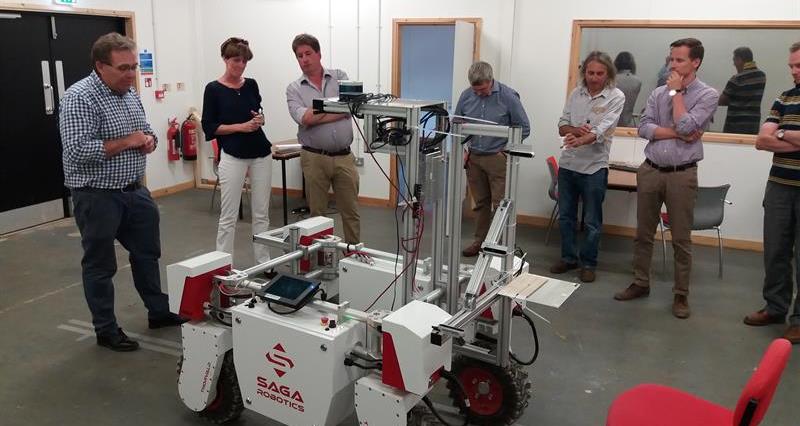The NFU has participated in a number of 'task and finish' groups making recommendations on particular aspects of technology and information exchange to the Food and Drink Sector Council through its Agricultural Productivity Working Group. Accelerated applications of agri-robotics is one of these areas of transformative technology that we believe could make a step-change breakthrough in the efficient use of resources in agriculture and horticulture.
The NFU is delighted that Lincoln University, which led the Agricultural Robotics Task & Finish group, has been awarded a £6.3M grant by Research England/UKRI to create a new agri-robotics centre at Lincoln. The funding will provide a research group of about 30 academic and support staff including three new Professors in agri-robotics, matched by a further three new professors supported by University of Lincoln itself, as well as upgrading facilities at the Riseholme campus near Lincoln. The NFU and AHDB both provided letters of support for this research proposal, which is very much in line with our ambitions under the Industrial Strategy.
New research will look at how robots can help boost productivity and produce more food through the world’s first centre of excellence in agri-robotics – investigating how robots can tend, harvest and quality-control high-value crops with minimum human intervention. Autonomous machines capable of handling soft fruit are likely to find application in other farm sectors such as poultry (e.g. collecting ‘floor eggs’ or hanging carcasses). Up-skilling horticultural and poultry jobs could attract more indigenous workers to work in agriculture, reducing industry reliance upon immigrant labour.
Ali Capper, NFU horticulture and potatoes board chair, said:
“It is fantastic news that Lincoln University has been awarded £6.3m to fund international research into agri-robotics. The NFU has been a key supporter of this work so far and we look forward to seeing the future success of this programme as a result of this additional funding. This funding not only recognises the importance of their research but also the importance of supporting British food production by finding long term, viable methods of reducing our reliance on seasonal labour. It will likely be several years before growers are able to access these robotics on a wide scale, and it is therefore vital that alongside the support this fund represents we also have a fit for purpose immigration policy which ensures that seasonal workers can come to our farms to produce the healthy food we should all be supporting.”
